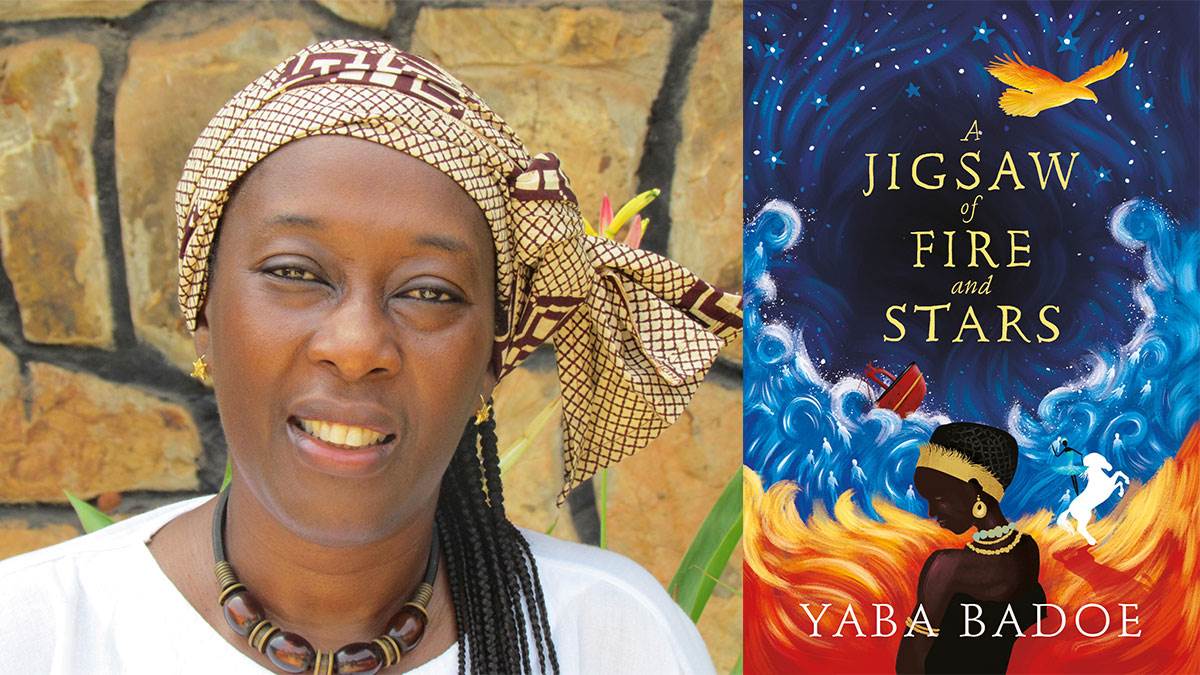Writing about outsiders: 'It’s important to tell stories that reflect the diversity of humankind'
Published on: 18 July 2018 Author: Yaba Badoe
Yaba Badoe is an author, filmmaker and journalist. She tells us about her road to being published – and the stories she wants to tell children and young people as a Ghanaian-British migrant.

I’ve always enjoyed reading and writing. So much so, that I must have been about ten years old when I wrote my first "book" – a doleful tale of a gypsy girl who wanders from house to house, begging for food until, exhausted, she drops dead on a stranger’s doorstep. I stitched the pages of the story together, illustrated a cover, and then presented my book to, my form teacher, Mrs Preston.
‘How sad,’ she said after reading it. ‘Did your heroine really have to die?’
Heady with the power to create and destroy as I pleased, I replied: ‘Yes!’
Stories run in the family
I suspect that the urge to tell stories is ingrained in the human family’s DNA. It was certainly ingrained in my family. My grandmother had a treasure trove of West African folk tales, Anansi stories, which she told me from memory. My mother wrote short stories for one of the first women’s magazine published in Ghana, Obaa Sima (Ideal Woman), and would hold me spellbound with anecdotes about our large extended family. Obaa Sima was owned and edited by my aunt, the journalist and novelist, Kate Abbam.
Even so, despite my many advantages (coming from a household where reading was encouraged and then guided by teachers who helped me develop my writing skills), my journey to publication has been arduous.
Maybe it’s because, as a producer and director of television programmes, I don’t have it in me to be one of those writers who gets up early in the morning and knocks off a thousand words before dashing to work. I find making documentary films too all consuming for that. So, to make space for writing, I left a staff job at the BBC to become a freelancer. Eighteen years later, after several of my short stories had been published in Critical Quarterly and anthologies such as African Love Stories, my first novel for adults, True Murder, came out with Jonathan Cape in 2009.
Somehow I’ve managed to combine making films with writing. My day job pays for my expensive writing habit. Yet it wasn’t until September 2017 that Zephyr, an imprint of Head of Zeus, published my first Young Adult novel, A Jigsaw of Fire and Stars. A month later, Cassava Republic produced a collection of fairy stories, The Secret of the Purple Lake, which I wrote years ago for younger children.
Hearing from African Europeans
Most of the characters I write about are a lot like my ten-year-old self: young women of African descent, living in Europe.
Eleven-year-old Ajuba in True Murder, has been abandoned at a Devon boarding school by her Ghanaian father. Haunted by the circumstances of her mother’s breakdown, Ajuba falls under the spell of new girl Polly Venus and her glamorous family. As the passionate bond between the two girls deepens, they discover what they think are the bones of kittens hidden in the attic of the Venus home, but the bones are human. The girls set out to unravel the mystery but as the summer draws to a close, three tragedies conflate with catastrophic results.
Sante, the narrator of A Jigsaw of Fire and Stars, was a baby when she was washed ashore in a sea-chest laden with treasure. It seems she is the sole survivor of the tragic sinking of a ship carrying migrants and refugees. Fourteen years on, she’s a member of Mama Rose’s dazzling circus. But from their watery grave, the unquiet dead are calling Sante to avenge them.
Whether I’m writing about Leo, a Viking prince, who loves cooking and singing but is terrified of the sea; Ajuba, a fisherman’s daughter who’s sent into the Gulf of Guinea to retrieve her dead father’s bones; or Jael, an Orcadian princess raised as a boy who refuses to marry; all of my characters are, in one way or another, outsiders.
The themes of abandonment, difference and transformation preoccupy me – not because I want to use my characters to explore issues of social justice, but because there is such visceral hatred directed to migrants of colour in Europe and America.
As a migrant, it’s vitally important to tell stories that reflect the incredible wealth and diversity of humankind: stories told from the perspective of African Europeans whose voices pack a punch and who need to be heard.
Topics: Immigration, Diversity (BAME), Features






Add a comment